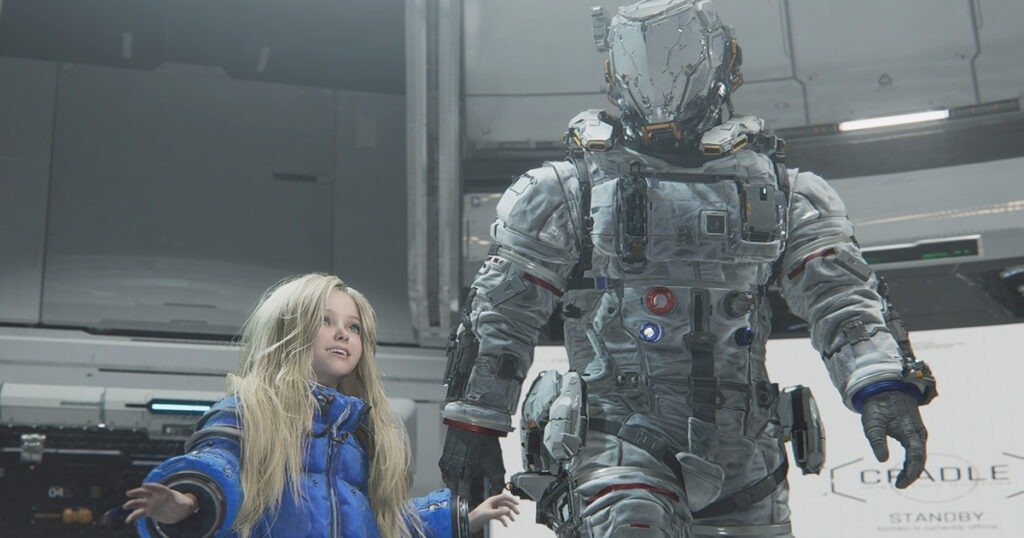Table of Contents
Pragmata is a Dream Delayed, Not Diminished
When Pragmata first appeared at Sony’s PlayStation showcase in 2020, it looked like a mystery wrapped in moon dust: an astronaut in a deserted city, a child in his arms, and a shattered sky above them. Then silence. For years, Capcom’s new sci-fi IP drifted in the dark, with little more than delay notices to prove it still existed.
But meeting producers Edso Edwin and Naoto Oyama, as well as director Yonghee Cho at gamescom asia x Thailand Game Show 2025 made one thing clear: Pragmata wasn’t dormant, it was incubating. The team didn’t spend the past four years expanding its scale, but refining its soul.
“The important thing wasn’t adding more,” Edwin says. “It was making the base concept work as a complete game — emotionally and mechanically.”
For Capcom, a studio defined by legacy franchises, Pragmata represents rare creative risk, an original world built not from nostalgia, but from trust. Trust in players to sit with silence, to find meaning in small gestures, and to discover humanity somewhere far from Earth.
The Heart Beneath the Helmet
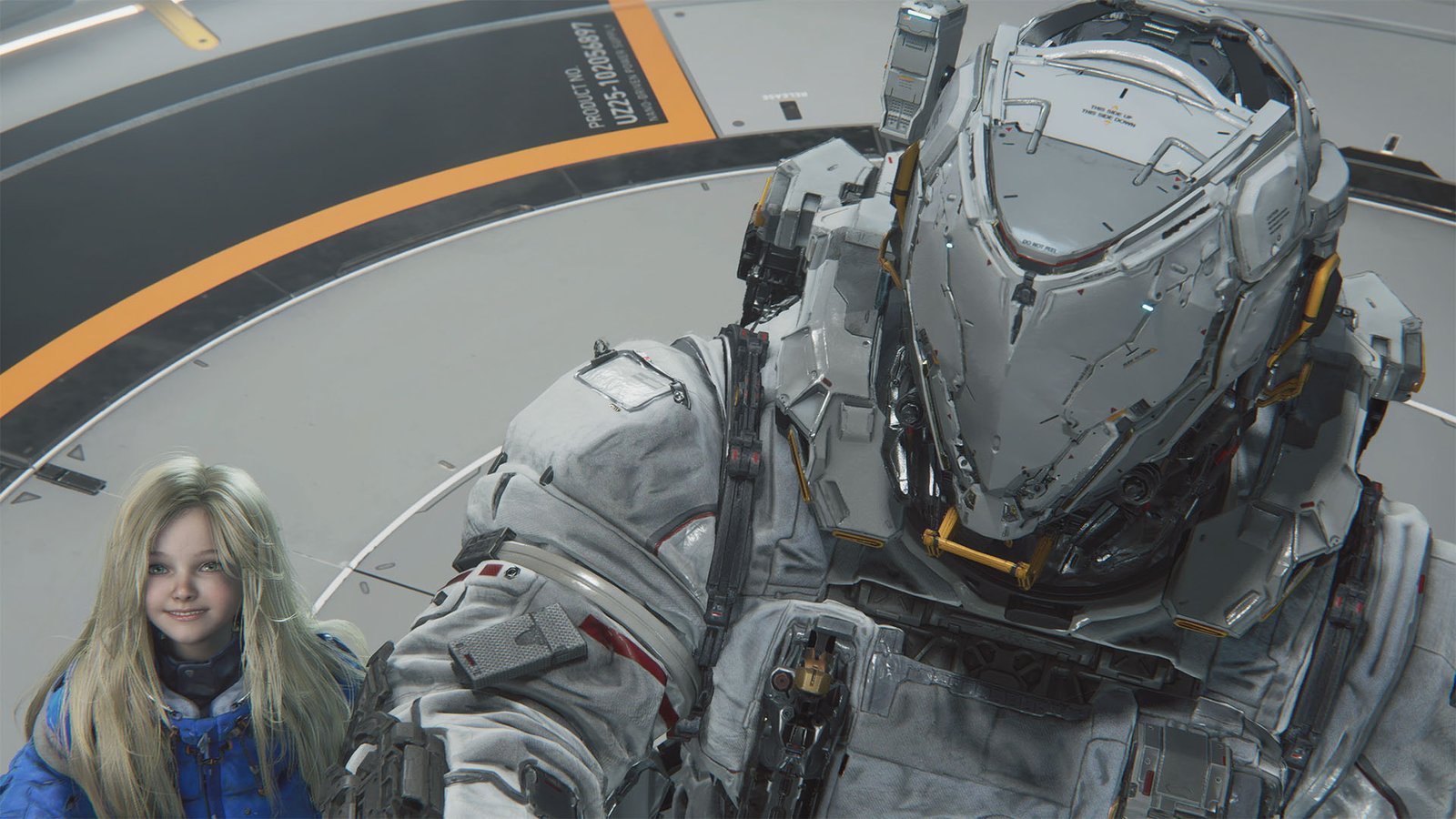
At the centre of Pragmata are two figures: Hugh, a stranded astronaut, and Diana, a barefoot android child. Their story unfolds against the desolation of a lunar colony where communication is broken, and the only warmth comes from their growing connection.
“When you think of the moon, you think cold and lonely,” says Cho. “So we added Hugh and Diana’s relationship to bring warmth into that space.”
Their bond isn’t a mere narrative device, it is the framework on which the entire game is built. Hugh’s armour and training define structure and logic, while Diana’s innocence provides unpredictability and heart. In the team’s words, she “brings light into the void.”
Early glimpses of the game show small moments that speak louder than cut-scenes, such as Diana’s handprint on Hugh’s visor, a clumsy high-five after surviving a near disaster. They reveal what Pragmata truly wants to express: not survival, but companionship.
A World Built on Strategy and Synchronicity
Although its story is delicate, Pragmata’s gameplay is deliberate. It isn’t a shooter or a puzzle game, but a hybrid of both — where every action relies on the coordination between Hugh and Diana. “The core idea was to make you think,” Oyama explains. “Every encounter should make you stop and plan, not just react.”
Players control Hugh directly while also simultaneously guiding Diana to manipulate machinery, deploy shields, and disrupt enemy systems. It’s a partnership that feels as much about trust as skill, a single-player game where your second character behaves like a reflection of your intent.
Cho admits that balancing this took years. “Our team got too good at our own game,” he laughs. “We had to bring in external testers to remind us how normal people play.” What results is a rhythm of calculated motion — bursts of kinetic action punctuated by pauses of eerie stillness. The combat’s tension doesn’t come from speed, but from precision and anticipation. It was something that became increasingly clear during my own demo experience.
A Father, a Daughter, and the Data Between
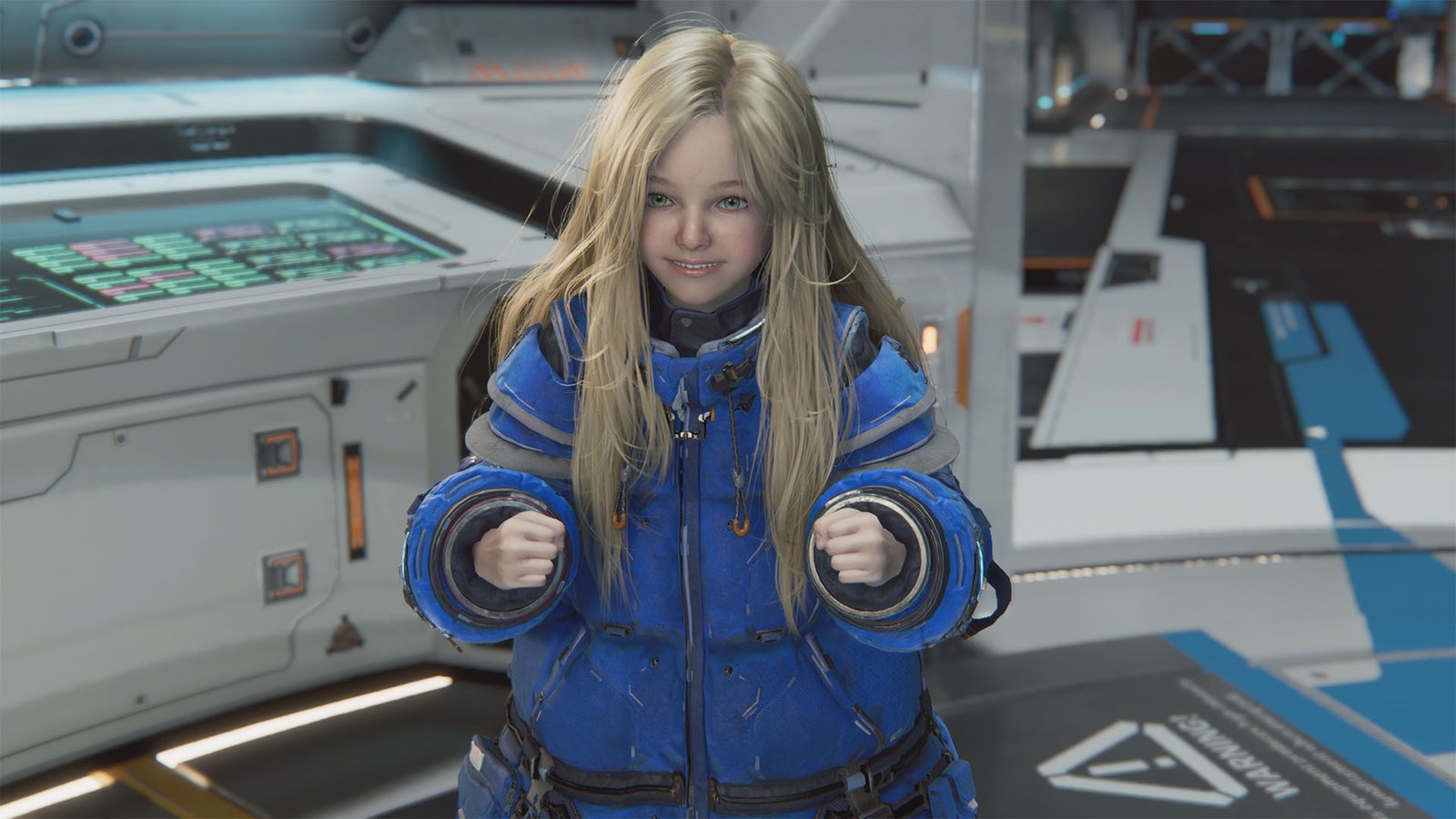
Thematically, Pragmata explores the intersection of humanity and artificial life, not as a warning, but as a question. Who teaches whom what it means to live? “The story was affected by AI’s rise, but not the gameplay,” Cho notes. “It made us ask different questions, not what AI can do, but what we expect from it.”
Diana’s learning process mirrors that curiosity. She isn’t programmed as a flawless companion; she grows with the player, misunderstanding commands, interpreting gestures, and developing quirks of personality. The developers describe her as “a child learning emotion from a world that has none.”
That duality of human and machine, control and chaos defines Pragmata’s tone. Beneath its sterile sci-fi setting lies a profoundly human story about empathy and rediscovery.
Building a Game from Nothing
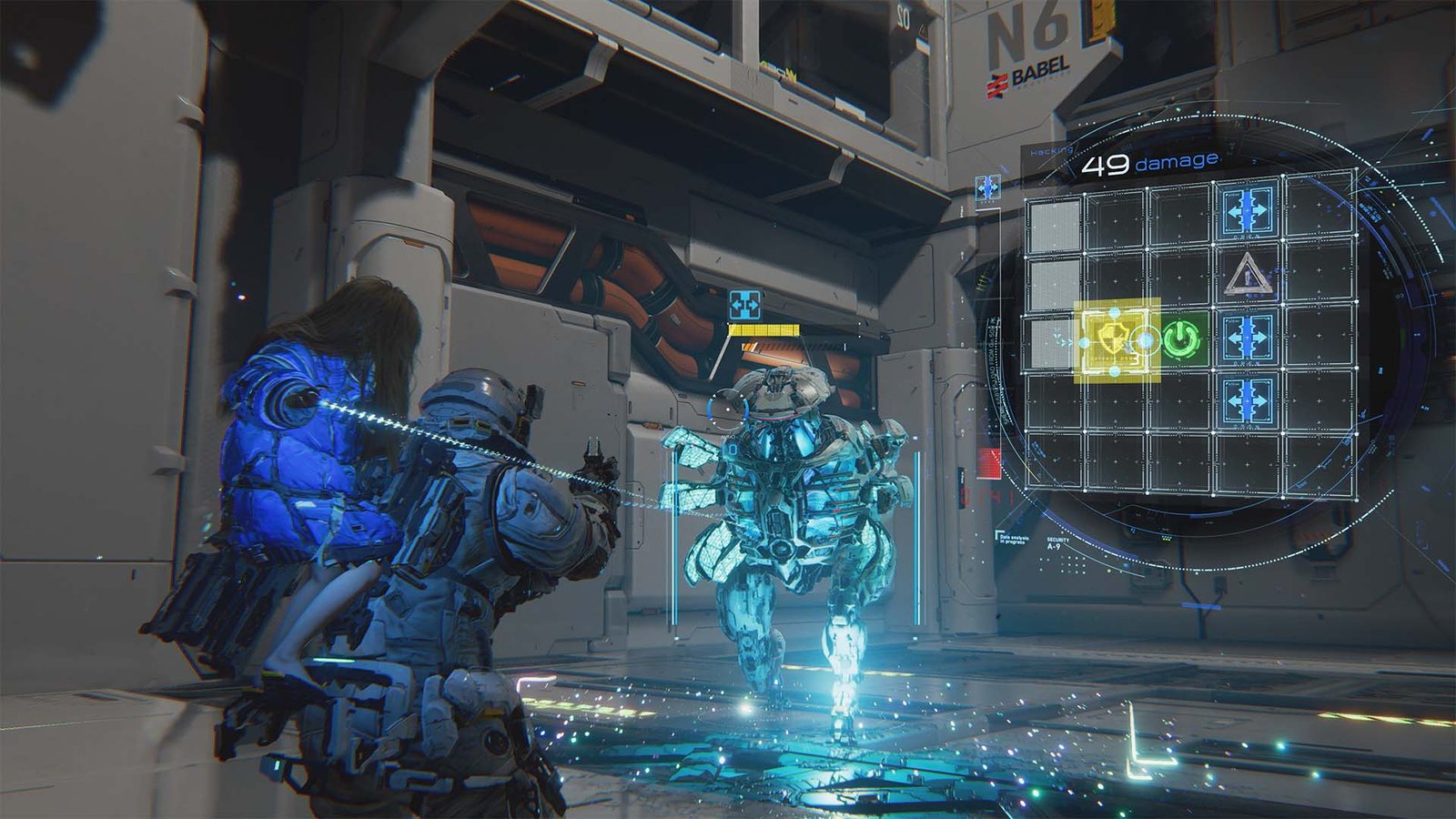
For Oyama, the most challenging part of Pragmata wasn’t the technology, but the identity. “When you work on Resident Evil or Monster Hunter, people know what that means,” he says. “With Pragmata, we had nothing. We had to create our own language.”
That process involved defining even the most minor details: how Diana’s eyes move when she’s scared, how Hugh breathes when his oxygen runs low, how silence feels after a long fight.
“We didn’t know who Diana was at first,” Oyama admits. “We had to figure out how much she knew about Earth, how she would laugh, now we finally know her.” Each of those decisions shaped the tone of the game, quiet, deliberate, and strangely intimate for a setting as vast as the moon.
Inspirations from Japan to the Stars
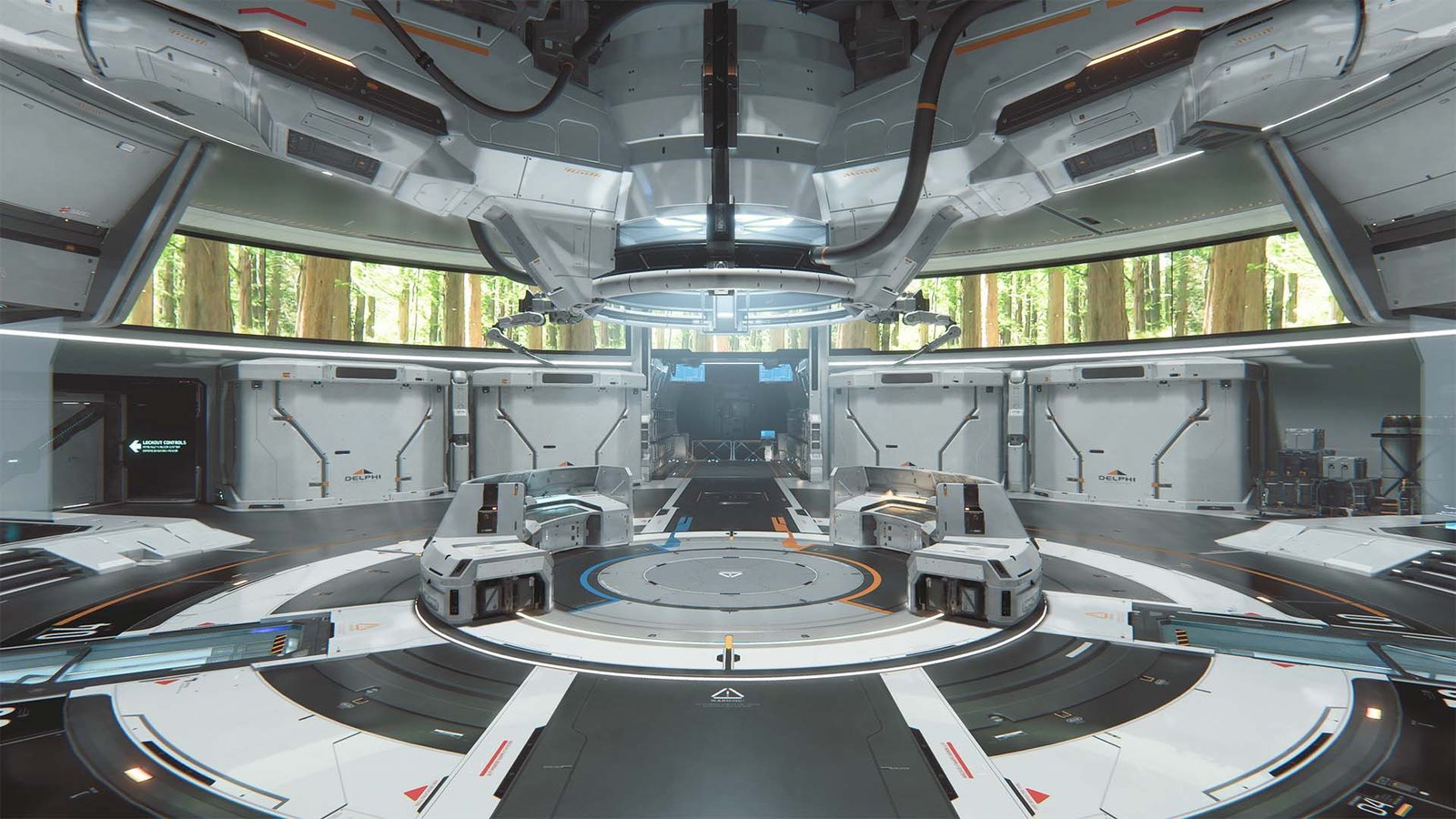
Cho’s background in animation and Japanese cinema bleeds into every frame of Pragmata. The project draws from the introspection of classic Japanese sci-fi works like Planetarian and Voices of a Distant Star, pairing it with Capcom’s technical precision.
“The idea of Diana walking barefoot in space came from wanting to show fragility,” Cho explains. “You see this little girl where she shouldn’t be and that contrast makes you care.”
The team also looked to modern indie storytelling for inspiration: smaller, emotional narratives built on mood rather than mechanics. That influence shows in Pragmata’s quiet confidence, of a potential blockbuster that dares to move slowly.
A Quiet Kind of Hope
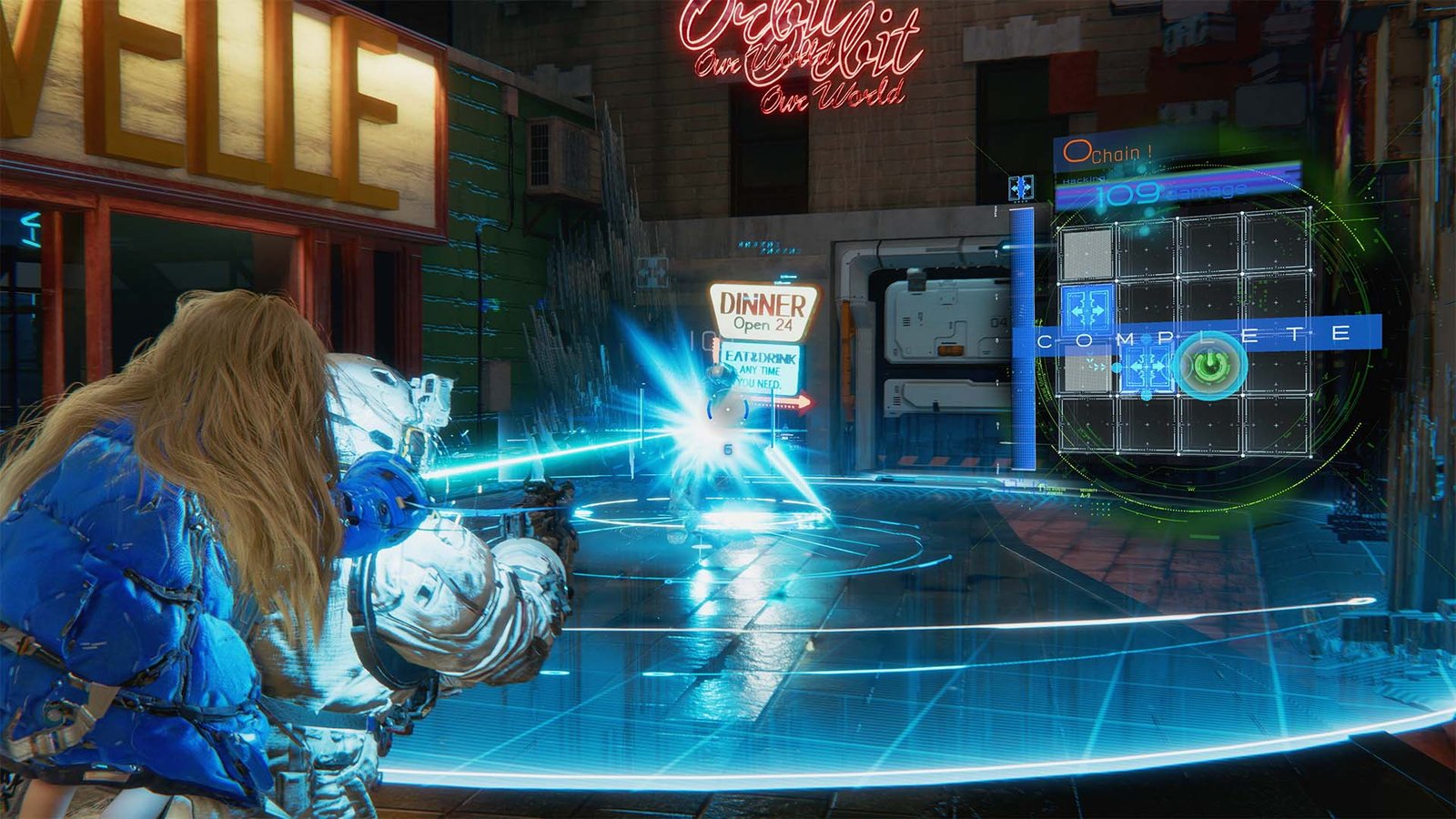
After so many years of speculation, Pragmata feels less like a conventional Capcom release and more like a statement. It isn’t trying to compete with its stablemates, it’s trying to feel something different.
“We want people to enjoy it from beginning to end without getting bored,” Edwin says. “But more than that, we want them to finish it and still be thinking about it.”
That may be Pragmata’s quietest strength: a story that lingers after the credits roll. It isn’t about saving humanity, but about remembering what makes us human in the first place. For a game once considered lost in orbit, it’s remarkable how much heart it has found.
Pragmata is scheduled for launch sometime in 2026 for PlayStation 5, Xbox Series X|S, and PC with no specific release date set.

